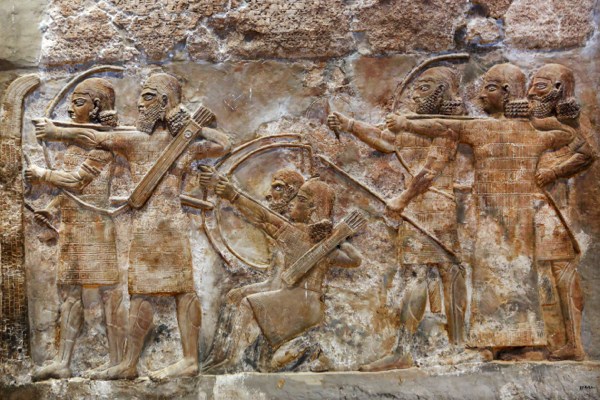Last weekend, the Iraqi government reopened the country’s national museum in Baghdad 12 years after it was looted during the U.S.-led invasion. The unexpectedly early reopening was a small act of defiance after militants of the self-declared Islamic State (IS), also known as ISIS, released a propaganda video showing a rampage through the Mosul Museum. Some of the objects destroyed by the extremists in Mosul were plaster reproductions, and when toppled over smashed quickly in a cloud of dust. But others were ancient limestone originals, millennia-old, struck with sledgehammers and jackhammers. The museum houses a vast collection of antiquities from the Assyrian Empire and the nearby desert city of Hatra, a UNESCO World Heritage site.
“They are trying, with their barbarism and arrogance, to destroy the inheritance of humanity, the inheritance of Iraqi people and their civilization, [the] same way they destroyed humans,” Iraqi Prime Minister Haider al-Abadi declared at the Baghdad Museum. IS has deliberately destroyed cultural and religious artifacts before, leaving a trail of destruction from its Syrian base in Raqqa, where its fighters have plowed bulldozers into ancient statues of Assyrian lions and blown up Byzantine mosaics, to Mosul, where last summer it leveled a hallowed Muslim shrine. Before ransacking the Mosul Museum, IS militants reportedly burned 100,000 books and manuscripts from the city’s central library. UNESCO’s director called that “one of the most devastating acts of destruction of library collections in human history.”
But whatever IS isn’t destroying, it’s selling. The group oversees extensive looting in Syria and Iraq and uses returns on the black market as a prime source of funding, second only to oil. As Mark Vlasic, a senior fellow and adjunct professor of law at Georgetown University, has noted, IS trades in “blood antiquities.” More international action is finally being taken to rein in those activities. While that is vital, the pillage can’t be stopped without getting at the heart of the crisis in Syria and Iraq.

